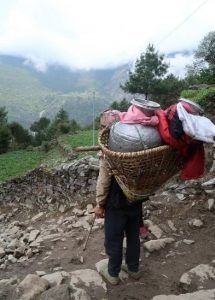Dear readers,
2020 was a year of dramatic changes, and a year in which millions of people around the world suffered catastrophic impacts on their health and welfare. At the time of writing (April 7, 2021), approximately 2.8 million deaths globally have been recorded as resulting directly from COVID-19 since the start of the pandemic. Each of these losses is a tragedy for the individuals concerned and for their families and friends.
In addition to the health impacts, the pandemic has almost totally halted international tourism and raised serious questions about the future trajectory of the industry. This sudden interruption has caused severe economic hardship for millions of people employed in tourism and has resulted in the closure of significant numbers of tourism businesses – some of these closures are temporary, but some specific businesses may never re-open.
Nevertheless, once the immediate global health crisis has been managed and once people and governments consider it is safe to travel across borders, there is no doubt that international tourism will return. The post-Covid-19 world will be different in many respects, so this seems like an appropriate time to start to consider Bruno Latour’s (2020) question posed early in the pandemic and ask ourselves what aspects of tourism from pre-Covid-19 days we would like to see return and what aspects we would not like to see return.
The articles in this issue result from research conducted before the current pandemic, and although they reflect the concerns of the time, they are still relevant. Students conducted research into overtourism in Amsterdam, the challenges facing southern Bali from rapidly increasing tourism numbers and whether the north of the island could be developed, cruise tourism and stakeholder perceptions in Port Villa Vanuatu, how residents were responding to community based and ecotourism in Lombok, Sade Rembitan and Raja Ampat in Indonesia, and the consequences of tourism development for mountain communities in Nepal.
One of the recurring themes in discussions about the recovery of tourism post-Covid-19 is the expressed desire to build back better. The students’ work published in this edition provides a good starting point as we begin to clarify our responses to Latour’s (2020) question. City tourism and cruise tourism will return, but perhaps now is an opportunity to ensure that this return avoids many of the past problems associated with these types of tourism and that it creates new opportunities for local communities and businesses to benefit. Similarly, communities in countries such as Indonesia and Nepal should be able to benefit much more positively from tourism and have much more of a voice in how (and indeed whether) tourism is developed in their locality.
We hope that over the next few years, TDM Insights can play a part in contributing to a brighter future for tourism. We are looking forward to the challenge. We have taken a small step along this path ourselves as this edition marks our move away from a printed version and is our first online publication. The journey to this new digital format was not always easy for us, but we would really like to the thank the staff and students from the Media department here at BUas (Laura, Lisanne, Liam and Daria) for their enthusiasm and expertise in helping us make the transition.
Sincerely,
Ray Boland, Celiane Camargo-Borges, Simone Moretti.
Sources: Latour, B. (2020, March 29). What protective measures can you think of so we don’t go back to the pre-crisis production model? AOC Media. http://www.bruno-latour.fr/sites/default/files/downloads/P-202-AOC-ENGLISH_1.pdf





